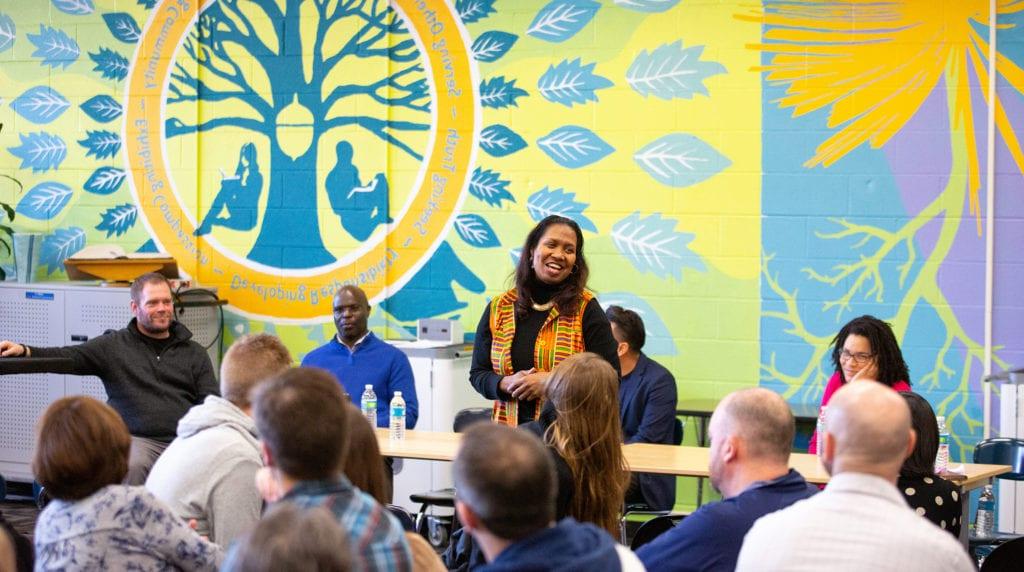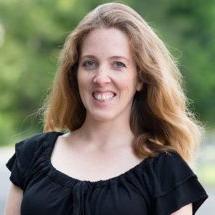Today is Giving Tuesday! LEARN MORE & GIVE NOW
God’s Heart for Worship: Honoring and Celebrating Every Tribe, Nation and Tongue

In a year where many activities are cancelled, yearbook staffer, Josaida Pineyro, decided to poll music students on their favorite songs from last year. The near-unanimous winner: Baba Yetu, a song about the Lord’s Prayer, written exclusively in Swahili.
This experience was one of many opportunities on campus aimed at intentionally cultivating unity within diversity last year. From Pre-K through high school, students were brought into the richness of the Christian faith represented by a variety of cultures and languages. Guided under the mission of last year’s spiritual theme, “Every Tribe, Nation and Tongue,” students and staff members learned from parents, they learned from community pastors and diversity experts, and they learned from each other.
This year the work continued under a different theme. “In implementing ‘Every nation, tribe and tongue,’ we created a foundation of unity. We have moved from understanding that to acting on it through “Act Justly, Love Mercy, Walk Humbly,” stated an internal report.
Vital Worship Grant Undergirds Initiative
Many of these experiences were made possible by a $15,000 Vital Worship Grant awarded by the Calvin Institute of Christian Worship to Eastern Christian School after a vigorous application process facilitated by grant writer Melanie Davies. The school was recently commended for the successful conclusion of this 2-year process, which was chaired by teachers Belen Araneda and Adam Culp under the support of Assistant Head of School Ruth Kuder. The grant enabled the school to purchase music, chapel and devotional materials; bring in new speakers; and offer specialized training.
As part of the process of assessing effectiveness of the initiative, students and staff members participated in a survey titled Diversity in Worship after the conclusion of the 2019-2020 school year. Out of 250 responses, 70% observed a noticeable difference in worship styles and themes because of the efforts to culturally diversify chapels.
“I feel blessed to know God more in school and in church,” shared one participant. Another commented, “I feel like it is a safe place.”
A Community on a Journey
The survey also revealed some other statistics regarding our school community. Currently, EC students worship at home churches speaking in English, Spanish, Korean, Greek, Russian, Chinese, Armenian and Malayalam. Home church worship styles ranged from remaining mostly stationary to lifting up hands to dancing in the service.
“Revelation 7:9 gives us a picture of every tribe, tongue, people and nation worshipping God and so not only is it a beautiful thing to bring together people of many backgrounds, but it’s also just biblical. God created us in His image, each unique and beautiful in our own way and each purposeful in our way. When we worship in many different forms, we are able to see a glimpse of God’s many facets,” shares Araneda.
The good work begun in 2019 will continue for the foreseeable future. The final report noted that the community continues to seek learning and growth opportunities, especially around feelings of inadequacy. “Dr. Loyd-Paige [diversity and inclusion consultant] encouraged us to press through these fears, and to prayerfully step into the difficult work of inclusion and diversity…this charge has led us to healthy risk-taking in class discussions, and greater openness to incorporate diverse elements of corporate worship.”
Araneda adds, “I think that EC has started a very important journey. We want this to be a place where everyone feels welcomed and included. There is so much value in learning from each other because God has given each of us different gifts. Moving forward, I think that we need to continue to be intentional in this work and dive deeper and deeper into understanding where we are thriving and where we need to make changes.”

